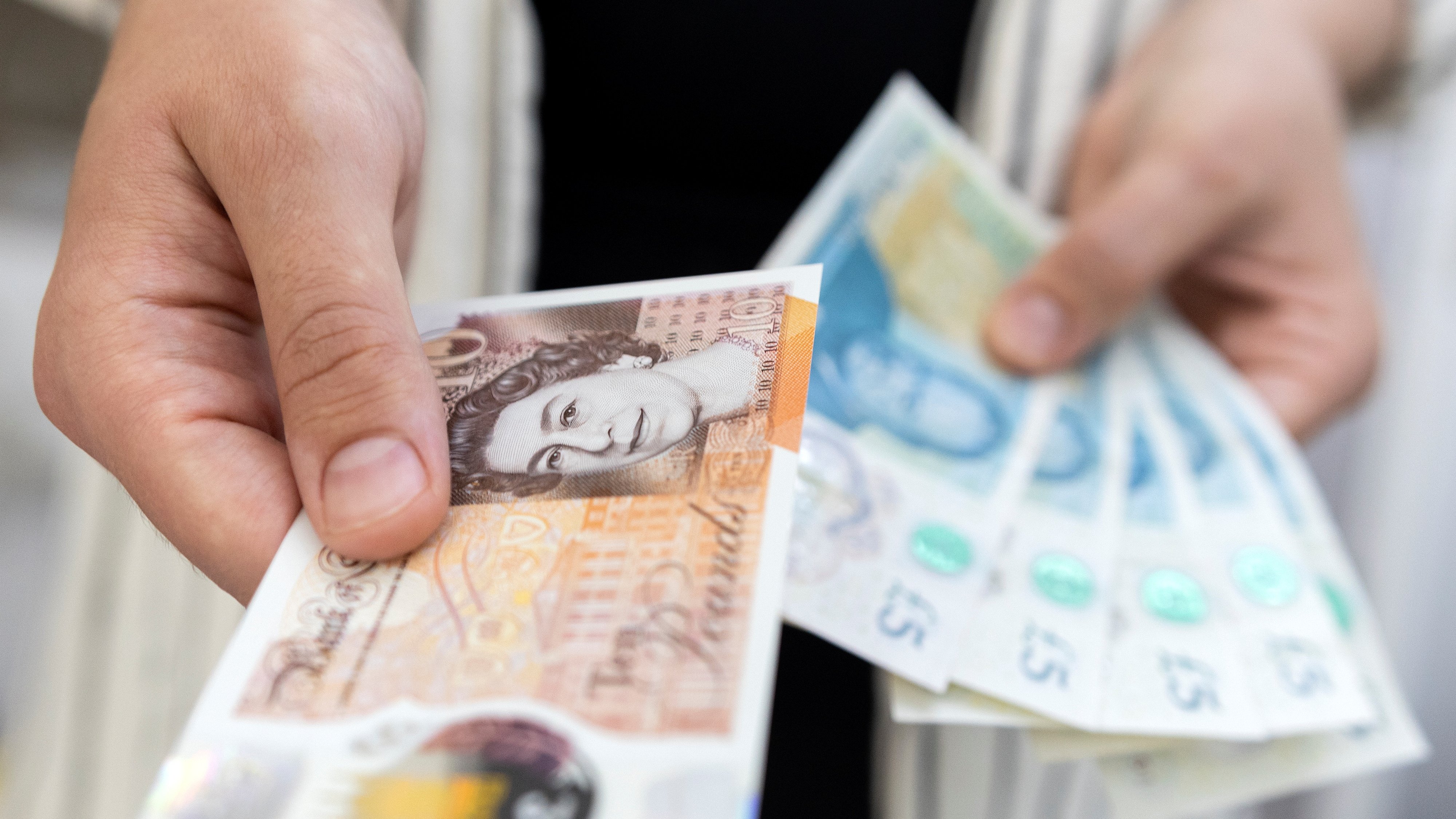Today’s News
The British pound held steady and U.K. stocks looked set to rise on Friday following a decisive victory for the centre-left Labour Party in the parliamentary elections. This outcome provided investors with a sense of stability after years of market volatility.

Image Source: Reuters
By 0600 GMT on Friday, Labour, led by Keir Starmer, had secured 405 of the 650 parliamentary seats, giving them a strong majority with a few seats still to be declared. Conservative Prime Minister Rishi Sunak has conceded defeat.
Sterling saw a slight strengthening after the release of exit polls, which proved to be largely accurate, and was last trading around USD 1.2767. The pound remained relatively stable against the euro, which stood at 84.75 pence.
Futures tied to the FTSE 100 index (.FTSE), opens new tab showed a 0.24% increase, slightly outperforming futures for European blue-chip stocks.
“It’s a breath of fresh air to be running (U.K.) equities in a market where the election is seen as non-event,”remarked Laura Foll, portfolio manager at Janus Henderson Investors.
“I’m hoping we’re going back to an era where boring is good and politics treads lighter in people’s lives,” she added. ” It will be a more gradual lifting (of confidence).”

Image Source: Reuters
Sterling has edged up since Sunak called the election earlier than expected in late May, making it the top-performing major currency against the dollar this year, with a gain of 0.3%.
On a trade-weighted basis, the pound now stands where it was in 2016, during the Brexit vote, signaling traders’ and investors’ belief that a period of high market volatility under the Conservatives may be nearing its end.
“We know Labour were going to win, so this doesn’t change much and this isn’t a game-changer for sterling. We now want to know what Labour’s plans are,” commented Kenneth Broux, head of corporate research for FX and rates at Societe Generale.
“Investors have been long sterling and sentiment has been good and the results won’t change that.”
Reflecting calm before the election, the premium investors demand for holding U.K. gilts over top-rated German 10-year bonds has remained stable this year around 160 basis points, significantly lower than the 230 bps seen during the 2022 mini-budget crisis.
U.K. stocks (.FTSE), reached record highs this year, supported by a slow but stable economic growth and moderating inflation.
Slow British Economic Recovery Post-COVID Pandemic

Image Source: Reuters
Britain’s economic growth has been slower than that of most other G7 nations following the impact of the COVID pandemic.
Pound, Fiscal Constraints, and Economic Outlook
However, memories of market turmoil following former Prime Minister Liz Truss’ 2022 “mini-budget” remain fresh in investors’ minds, and Britain’s stretched finances will limit any new government’s ability to increase spending. Maintaining investor confidence while addressing numerous economic challenges will be crucial.
“There is a lot of spending that (Labour) have pledged as well and only 20 billion pounds’ worth of fiscal headroom – give or take – so how those books are going to be balanced is a key question,” noted Michael Brown, senior research analyst at Pepperstone.
“And this plan for 2.5% annual GDP growth is punchy, if I’m being kind, fanciful if I’m being slightly less kind and if we don’t get that growth relatively quickly, you could be looking at a pretty significant fiscal tightening going on,” he added.
In recent years, Britain has faced some of the highest inflation rates and interest rates among developed nations.
U.K. 10-year government bond yields have risen this year to around 4.2%, as investors have sold debt based on expectations that British interest rates will decline more slowly than previously anticipated.
The Bank of England is widely expected to reduce interest rates at its upcoming August or September meetings. Analysts anticipate investors will swiftly shift focus from the election results to monetary policy.
“What’s going to be really interesting is there isn’t actually that much headroom for dramatic change in fiscal policy,” observed Fiona Cincotta, senior markets strategist at City Index.
“So I don’t think there is anything that is going to massively move the market as far as these elections are concerned now until the Autumn Statement, so the focus is going to shift, probably pretty quickly, back to the Bank of England,” she concluded.
Other News
China’s Central Bank to Sell Bonds Amid Market Rally
China’s central bank, the PBOC, intends to sell hundreds of billions of yuan in bonds to counteract a strong bond market rally driven by economic uncertainty and investor flight to safety.
Raiffeisen Bank’s Russian Dealings Under U.S. Scrutiny
Raiffeisen Bank International faced intense pressure from U.S. authorities to abandon a deal linked to a sanctioned Russian oligarch, highlighting tensions and regulatory challenges.
Switzerland, EU Resume Financial Market Talks After Hiatus
Switzerland and the European Union have restarted discussions on financial market regulation, addressing issues such as cross-border activities, digital finance, and sustainable finance.



